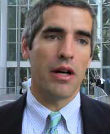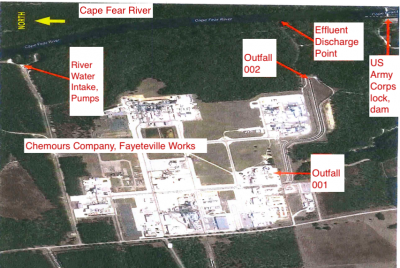CHAPEL HILL — An environmental group is working to stop Chemours from releasing air and water pollutants from its Fayetteville Works Facility.
The Southern Environmental Law Center, or SELC, on behalf of Cape Fear River Watch, sued Wednesday Chemours Co. The case was brought in the U.S. District Court for the Eastern District of North Carolina for the company’s pollution of air and water with toxic perfluoroalkyl and polyfluoroalkyl substances, or PFAS, including GenX, the SELC announced Wednesday.
Supporter Spotlight

“Hundreds of thousands of North Carolinians get their drinking water downstream from Chemours’ toxic discharge,” said Kemp Burdette, Cape Fear Riverkeeper, in a statement. “This illegal contamination can’t stop soon enough for them and Chemours and DuPont must be held accountable for their reckless behavior.”
Documents filed Wednesday by the conservation groups describe Chemours’ continued PFAS pollution of the state’s water and air through its stack emissions, leaking pipes, unlined pits and wastewater ditches, and contaminated equipment in violation of both the Clean Water Act and Toxic Substances Control Act, according to the release.

“Chemours’ decades-long contamination of North Carolina’s environment must stop to prevent more harm,” Geoff Gisler, senior attorney, SELC, said in a statement. “The families and communities who drink from, swim in, and fish on the Cape Fear River deserve healthy, clean water.”
Alvenia Scarborough, director of communications for the Chemours Co., told Coastal Review Online in an email, “Chemours is reviewing the complaint and strongly disagrees with allegations that we are in violation of the laws cited. Chemours intends to defend itself vigorously against the claims.”
DEQ filed in June proposed court order to require the Chemours Co. to implement several measures to eliminate or reduce air emissions and water impacts caused by GenX and related compounds and address contamination in and around the company’s Fayetteville Works facility, Coastal Review Online reported June 12. Among the requirements was to reduce facility-wide air emissions of GenX compounds by at least 97 percent by Aug. 31, with a 99 percent reduction required by Dec. 31, 2019.
Supporter Spotlight
DEQ enforcement actions against Chemours to date are listed on the DEQ website.







